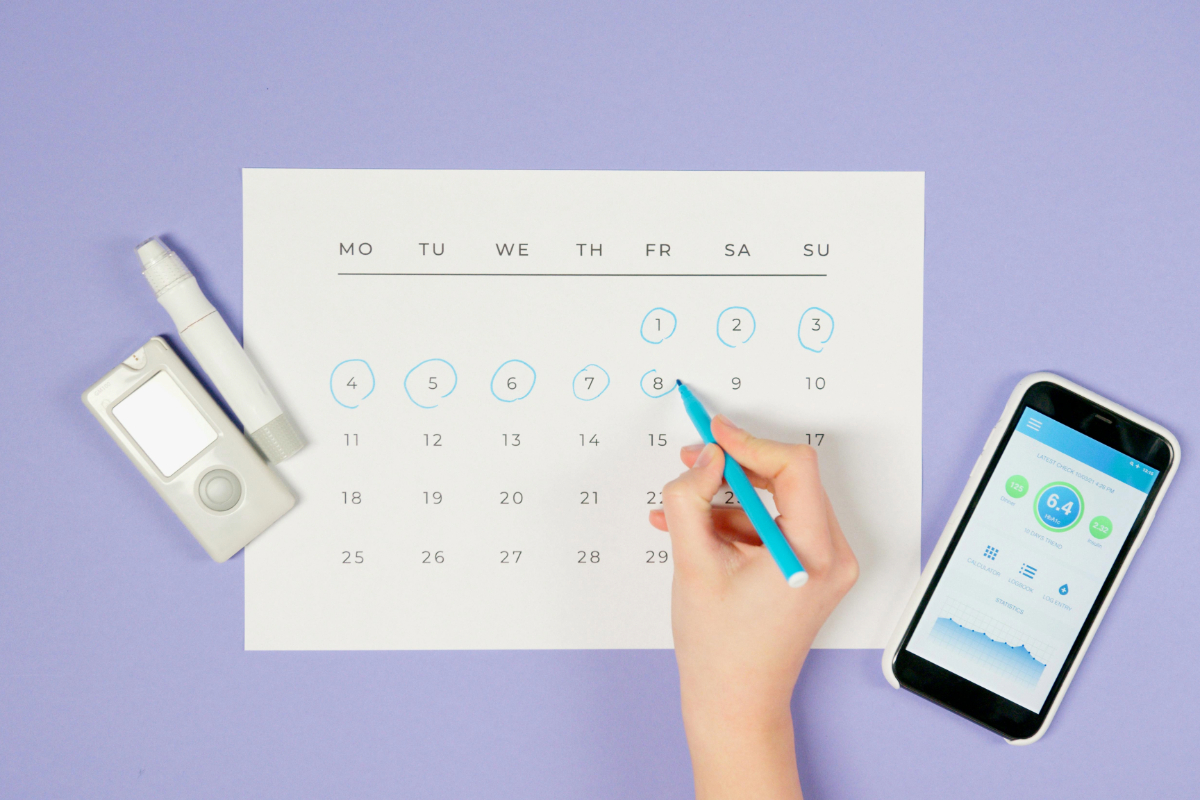Thinking about starting a family? Getting your body in top shape before trying to conceive isn’t just a smart move—it’s an act of love for both yourself and your future baby. Beyond simply ceasing birth control, being ready for pregnancy involves building a strong foundation for a healthy conception and a more seamless pregnancy.This supportive, friendly resource will assist you in beginning on the right foot.
1. Schedule a Health Examination Prior to Attempting
Prior to beginning ovulation monitoring, schedule a preconception appointment. This is more than just a routine; it’s an opportunity for you and your doctor to assess your health and make sure everything is in order for your pregnancy.
Your physician may:
- Examine your medical and family history;
- Suggest blood tests or screens;
- Talk about any prescription drugs you are taking;
- If necessary, update your immunization records.
Consider this stage as a way to get ahead of the game by resolving possible problems before they arise.
2. Take Prenatal Vitamins at an Early Age

Before a pregnancy test is positive, you can start taking prenatal vitamins.. Actually, beginning them several months in advance helps guarantee that your body gets the nutrients it requires from the beginning.
Pay attention to vitamins that include:
- Iron and calcium: Support for healthy blood and strong bones;
- Folic acid: Essential for early brain and spinal development
- Vitamins D and B12: For energy and immune system performance
- Omega-3s, such as DHA, aid in the development of a baby’s brain.
It’s important to take your vitamins consistently, preferably with food for optimal absorption.
3. Before getting pregnant, keep your weight in check

Your body’s reaction to pregnancy and the ease of conception are greatly influenced by your weight. Your ovulation cycle and hormonal balance may be impacted if you are noticeably underweight or overweight.
What you can do is as follows:
- Develop long-term dietary habits rather than crash diets;
- engage in regular exercise without going beyond;
- if necessary, seek professional advice.
4. Consider Fertility When Eating

Your diet has the power to either support or undermine your body’s capacity to conceive. You can boost the quality of your eggs, support your hormones, and set the stage for a successful pregnancy by eating a diet full of real, complete foods.
Good options consist of:
- Vibrant fruits and vegetables
- Lean proteins like fish, poultry, legumes, and eggs;
- Whole grains like quinoa and oats
- Nuts, seeds, and olive oil provide good fats.
- Limiting foods:
- Processed snacks and sugary beverages
- Deep-fried foods and trans fats; seafood high in mercury, such as swordfish
- Every meal is a step toward creating a healthy future, so eat with purpose.
5. Give Up Bad Behaviors

Now is the moment to let rid of everything that could interfere with your ability to conceive or have a healthy pregnancy. Despite being widespread, these behaviors can have long-term effects.
Things to reduce or give up:
- Alcohol: Even moderate consumption can interfere with conception;
- Smoking: Affects egg health and can lower fertility;
- Caffeine: Limit daily intake to 200 mg (about one cup of coffee);
- Drugs: Avoid recreational substances at all costs.
Consider this stage as a reproductive system detox.
6. Take Care of Your Emotional and Mental Well-Being

Your physical and emotional well-being are equally important. Because attempting to conceive can be emotionally draining, it is imperative that you take care of your mental health.
Methods for promoting your mental well-being:
- Set boundaries for stress at work and at home.
- Maintain relationships with encouraging friends and family; engage in relaxing activities like journaling or meditation; and consult a therapist if you’re feeling overwhelmed.
- A balanced body is the result of a peaceful, supported mind.
7. Recognize and Monitor Your Window of Fertility

When trying to conceive, it can be quite helpful to understand your menstrual cycle.
Easy methods for tracking ovulation include:
- Charting your cycle with a fertility app
- Tracking changes in cervical mucus
- Determine your body temperature during rest.
- Ovulation prediction kits (OPKs) should be used.
The more you understand the rhythm of your body, the more you’ll feel in charge of it.
8. Continue to Be Active Without Excessive Training

Pregnancy preparation can be greatly aided by exercise, but moderation is essential. Too little activity might slow down your metabolism, but too much exercise can mess with your hormones.
- Walking, swimming, or light aerobic exercise;
- prenatal yoga or Pilates; and mild strength training with small weights are suggested activities.
- On most days of the week, try to get in around 30 minutes each day. It’s time to reduce if your body feels exhausted rather than energized.
9. Use Screenings and Immunizations to Stay Safe

Being safeguarded against diseases that could present dangers during pregnancy is crucial before becoming pregnant. Which vaccinations and health examinations are required can be recommended by your physician.
Frequently advised before to conception:
- Seasonal flu shots; hepatitis B; rubella and chickenpox (if you’re not immune); and the COVID-19 vaccine or booster
- Additionally, stay current on Pap exams, thyroid, blood pressure, and blood sugar checks, as well as STD screenings.
10. Engage Your Spouse in the Procedure

Fertility is a collaborative process. Your chances of getting pregnant and your relationship at this unique time might both be enhanced by supporting your spouse in putting their health first.
Urge them to:
- Reduce alcohol intake and stop smoking;
- Eat healthily and take a multivitamin.
- Steer clear of hot tubs and other sources of extreme heat; get enough sleep; and manage your stress.
- Your partner’s health is equally as important as yours, and support is reciprocal.
Last Words:
Treat Yourself with Compassion While You Get Ready
A combination of enthusiasm, hope, and occasionally pressure can accompany trying to conceive. However, each healthy adjustment you make now contributes to a better tomorrow for you and your child.
You don’t have to be flawless. Simply be careful, consistent, and—above all—kind to yourself. Being a parent requires preparation, and you’re already headed in the right direction.
FAQs
Getting your body ready for pregnancy boosts fertility, lowers risks of complications, and improves your chances of a healthy baby.
Experts suggest starting at least 3–6 months before trying to conceive to allow time for physical, nutritional, and lifestyle changes.
Leafy greens, whole grains, lean proteins, berries, nuts, and foods rich in folate, iron, and omega-3s are ideal when prepping your body.
Yes! Moderate physical activity improves circulation, hormonal balance, and weight regulation—key elements when trying to get pregnant.


